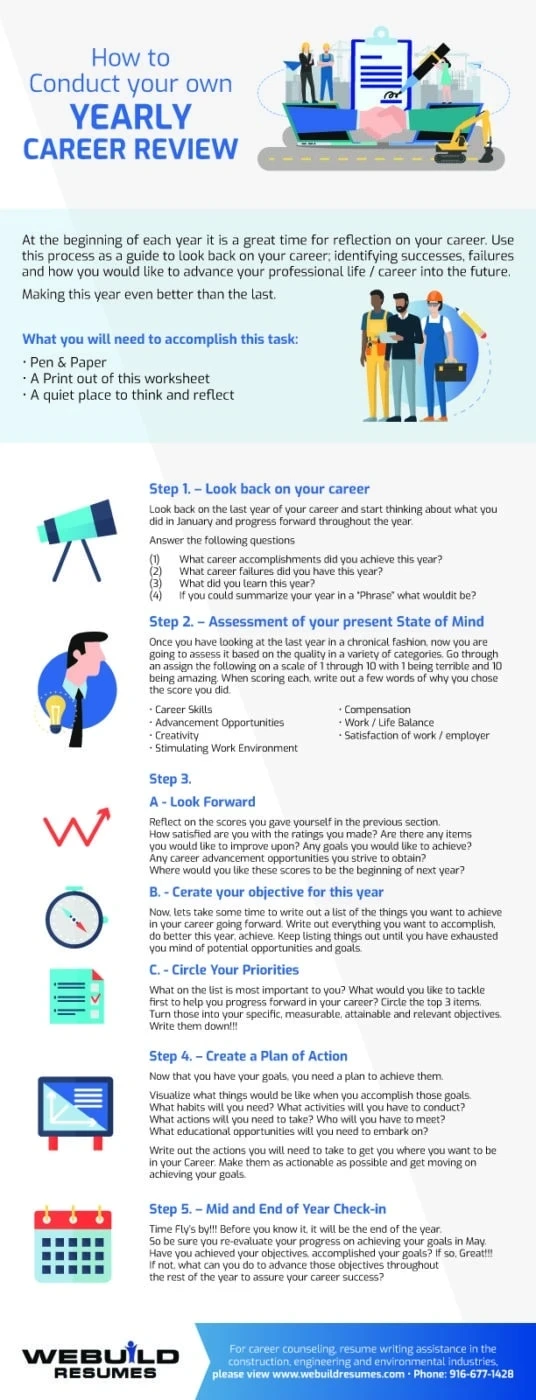How Performance Reviews Build Strong Workers in Your Company
How Performance Reviews Build Strong Workers in Your Company

You might think that employee reviews are simply about evaluating a worker’s performance. But they are even more valuable as a way to develop and retain good workers.
Anthony Fasano, PE and author of Engineering Your Own Success, developed an engineering.com blog and podcast on the subject. Fasano says that performance reviews are critical to both companies and employees because having goals and expectations in sync is what builds success for all parties.
In an article at For Construction Pros.com, Brad Humphrey (also known as The Contractor’s Best Friend) agrees.
“Most good workers, even those who can slip occasionally, want their performance to be assessed and discussed,” Humphrey wrote. “They welcome this opportunity and the accountability that can come with it. It’s only the lazy and contrary workers who breathe easier if they can live without any accountability.”
So if your goal is to retain good workers in the construction, engineering or environmental fields and to minimize the challenge of a labor shortage in the workforce, then performance reviews are a critical tool.
Reasons to conduct performance reviews
- Employees want to know how they’re doing in their roles and responsibilities as compared to their contractor’s or manager’s expectations.
- Contractors and supervisors want to assess how well their onboarding and skills training is working for new employees, and to reinforce positive work habits for existing employees.
- Aligning goals and expectations benefits both parties.
What to include in the performance review
- Specific major projects or initiatives completed since the last review
- Technical and job-related skills and knowledge
- Interaction with co-workers, supervisors, contractors, clients or vendors
- Problem-solving skills
- Attitude and effort on the job
- Attendance
- General company policies and procedures
How to conduct an effective performance review
- The format of the review isn’t important, as long as it’s easy for both the person completing the review and the person receiving it to understand. Templates are available online if you need them.
- Employees should do a self-evaluation, preferably that matches the employer’s version, so that they can compare and discuss areas where they disagree.
- Contractors should review new workers at 30, 60 and 90 days so that these new employees stay on track, engaged in training requirements and proficiency standards, and are prepared for future annual reviews.
- Regardless of how long employees have been with a group, they should get an annual performance review. This is an opportunity to recognize and appreciate your long-term employee’s contributions and to set continuing goals that will help them stay committed.
- Use specific examples of an employee’s work practices and behavior. Provide both positive observations and areas that need improvement. Encourage questions and discussion so that everyone is clear on what you want to see continued and what needs to change.
- Be specific on any requirements not met or areas that are not as strong as earlier reviews.
- If a review will be mostly negative, consider having two leaders attend the discussion.
- If a review will be mostly positive, don’t skip it. Your best workers are probably goal setters who want to discuss next steps and action plans. Keep them engaged and committed to the company, and be sure they know they are valued and appreciated.
- Include proactive goal setting in every review. Define what actions the employee will take in the next year, what support their contractor or manager will provide, and what resources are needed.
- Conclude all reviews, whether positive or negative, with encouragement and appreciation. Knowing that a contractor or boss wants them to do well and is there to support them is important to employee satisfaction and retention.
It may be time-consuming to conduct an annual review with each worker, but it’s critical to keeping your best employees, to correcting potential issues before they become major problems, and to developing good workers in your crew.
If you need help to build your crew in the construction, engineering or environmental field, WeBuild Staffing can help. WeBuild specializes in recruitment of professional within the construction, engineering and environmental industries. Please contact us for more information.
Michael DeSafey is a leading executive recruiter for professionals in the construction, engineering and environmental industries. He is currently the President of Webuild Staffing www.webuildstaffing.com . To learn more about Michael or to follow his blog please visit www.michaeldesafey.com
Category: Employer Tips
How to conduct you own yearly career review
How to conduct you own yearly career review
How to conduct you own yearly career review when working within the construction, engineering and environmental industries.

10 Things To Avoid Saying In A Performance Review Working For A Construction, Engineering or Environmental Firm

10 Things To Avoid Saying In A Performance Review Working For A Construction, Engineering or Environmental Firm
A performance review allows an opportunity for construction, engineering or environmental companies to discuss how well their employees are doing in a one-on-one situation. It is the perfect time for them to make suggestions on how jobs could be done better, and employees are often offered a chance to voice any complaints or suggestions also.
Performance reviews are typically carried out either quarterly, semi-annually, or annually. Sometimes they might be completed after a construction or engineering project.
These reviews are the driving forces between whether someone gets a promotion or pay raise and strongly contribute when companies decide to downsize.
One way many workers slip up is through what is said. Often, employees wouldn’t even be able to cite what it was they said wrong. To ensure this doesn’t stand in the way of growing your own career you will want to avoid saying things that reflect badly on you during the performance review.
10 Things to Never Say During Employment Review and Why:
1: “It isn’t my fault.”
While it can be difficult to accept blame, it is also vital to do so if you want to get anywhere in life. Telling your manager something isn’t your fault will only deter them from putting you in any leadership position
2: “I didn’t know.”
Not knowing something is never a valid excuse in the workplace. In these industries specifically, it can be dangerous for “unknowing” people to be on site. This simple phrase can make you appear to not only lack common sense but also to be a liability. If you truly do not know or understand, just ask someone!
3: “But so-and-so did it.”
Never compare yourself to others. Each person is unique in their job descriptions, capabilities, etc. This statement makes you appear more a follower than a leader and will greatly restrict your potential towards career growth.
4: “This isn’t fair.”
Suffice to say, life is not fair. Stating this will make you appear immature or childlike which is obviously not something employers in such high demand industries seek out in potential employees.
5: “Thanks, but I didn’t really do anything,” or “It was really a team effort.”
Many people feel uncomfortable when taking praise but when you’ve done a good job it’s okay to simply say thank you. Failure to accept praise is nearly as bad as an inability to accept criticism.
6: “Can I get a raise?”
While performance reviews are the place to get a raise, they are NOT the place to ask for one. Instead of asking for one outright, show your employer why you deserve one.
7: “That is not part of my job description.”
Anything your foreman, manager, or supervisor asks you to do is part of your job description. It takes everyone on site working as a team to effectively get the job done. The only exception for the construction, engineering, and environmental industries is if the task requires certifications or school you do not possess.
8: “I know.”
When your employer or manager tells you something, do not respond with “I know.” This can get irritating and makes you appear smug.
9: “But I’m not good at that,” or “That is not my strong point.”
You may not be good at whatever it is, but stating the obvious makes it appear as though you are not open to growth. Instead try saying, “I will work on that,” or “I will make an effort to improve on those skills.”
10: “This evaluation is wrong.”
Never tell your evaluator that they are wrong. Do not threaten to file a rebuttal. If you received a poor review you should look at it as an opportunity for growth. Simply thank your evaluator and walk out with your head high, determined to move forward with their suggestions.
Michael DeSafey is a leading executive recruiter for professionals in the construction, engineering and environmental industries. He is currently the President of Webuild Staffing www.webuildstaffing.com . To learn more about Michael or to follow his blog please visit www.michaeldesafey.com
